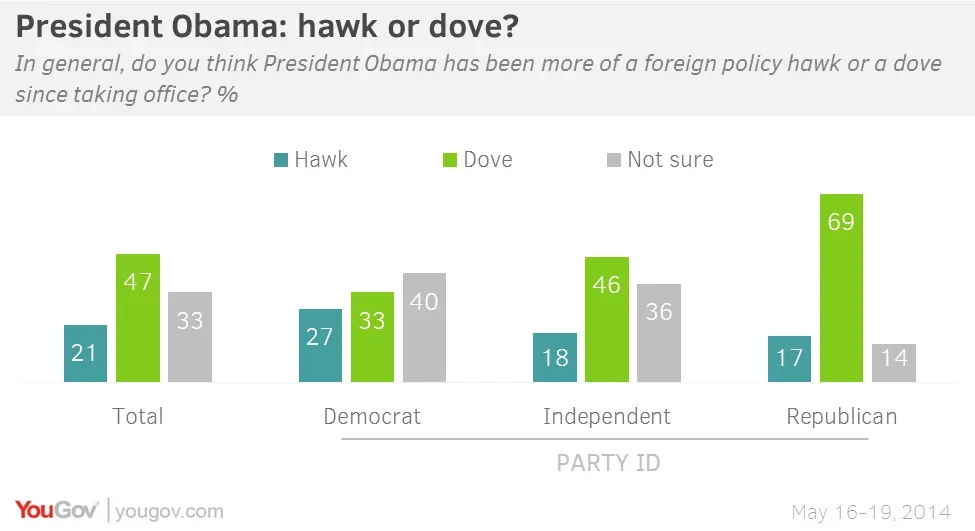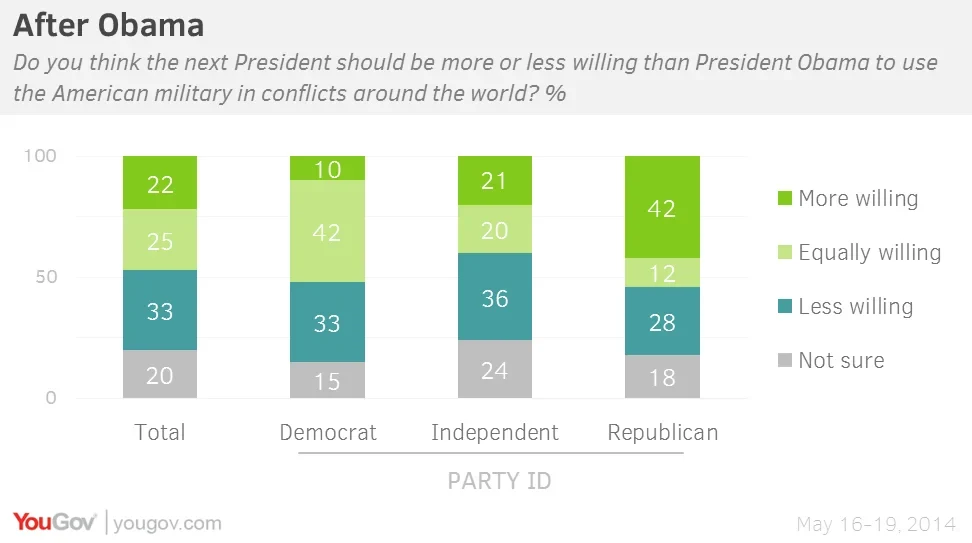Most Republicans think the president is a dove when it comes to foreign policy – Democrats aren’t so sure
Anti-war positions have defined Barack Obama as a candidate from early in his career as a national politician. His opposition to the Iraq war allowed him to take on the mantle of the anti-war left during the 2008 Democratic primary against Hillary Clinton as well as the subsequent presidential campaign. But since then, Obama’s identity as a foreign policy “dove”, or someone who opposes using the threat of force (the opposite being a “hawk”), is less clear cut. His use of unmanned drones and support for intervention in Libya, for instance, have earned criticisms from anti-war campaigners on the left and right. At the same time, the administration’s decision not to do more about crises in Syria or Ukraine have led to accusations of “weakness”.
The latest YouGov research suggests he has not shaken his reputation for being a dove since taking office – except perhaps among Democrats.
Overall, Americans tend to say Obama has been a foreign policy dove rather than a hawk by 47-21%. 33% don’t know. Republicans say “dove” by a much wider margin, 69-17%. Democrats, on the other hand, are just about evenly divided: 27% say he is a hawk, and 33% say he is a dove. The largest group (40%) actually respond “Not sure”.

2016 and beyond
On the question of whether Obama’s successor should be more or less willing than he has been to use the military in conflicts around the world, Americans are also divided, but the partisan differences appear less pronounced.
42% of Democrats say they want someone “equally willing” to use the military as Obama has been, reflecting support for the president’s approach. But they are much more likely to want a president who is less (33%) rather than more (10%) willing to use the military.
While among Republicans there is a tendency to prefer a president who is more willing to use military force (42%), there is also a sizable minority (28%) want a president who uses it less.
For independents, a more dovish president is the most popular choice, with 36%. Only 21% of independents want a more hawkish president.

President Obama recently attempted to lay out his foreign policy vision with a commencement address at West Point. In it, he warned against isolationism and announced new efforts to support rebel fighters in Syria, but also argued that America’s approach to international affairs should be multilateral and avoid “military adventures”.
Image: Getty
Full poll results can be found here.









